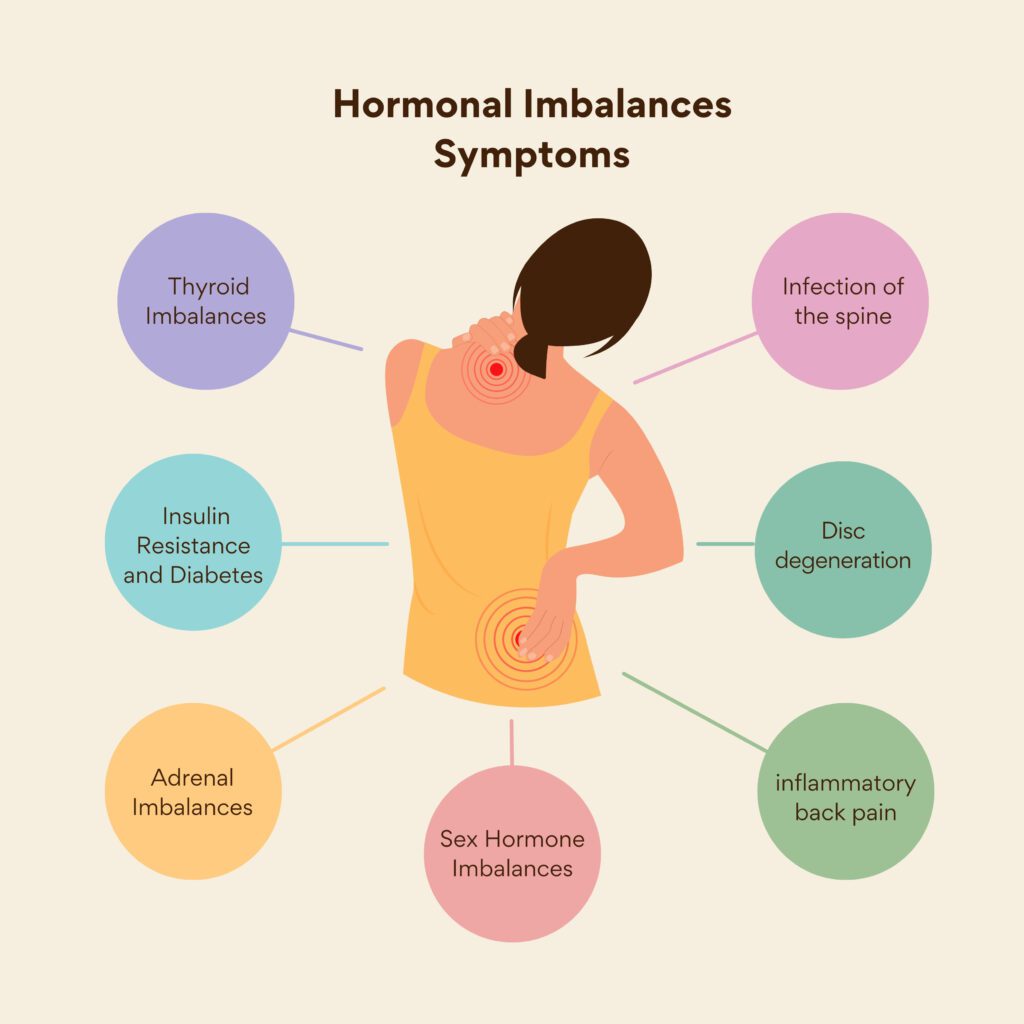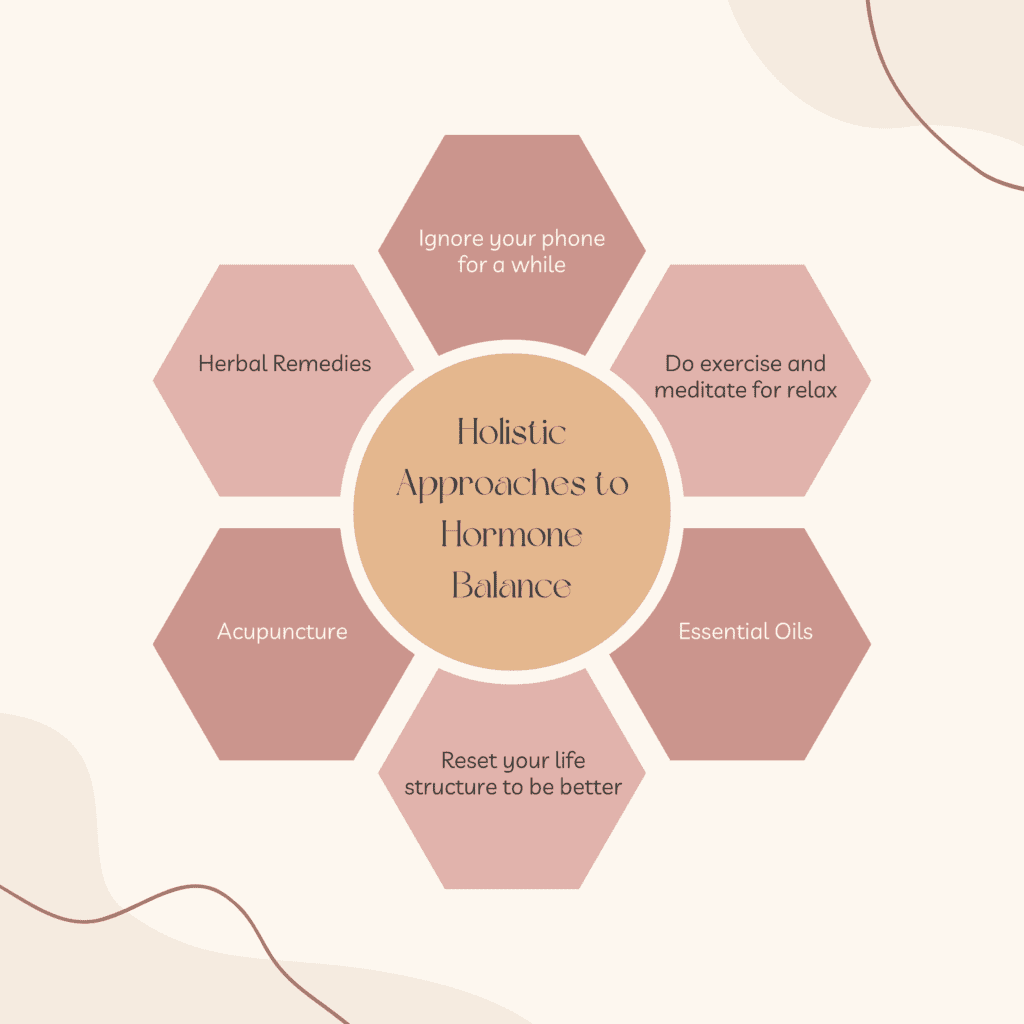Introduction to Solid Hormone Balance
Solid hormones are necessary in the human body’s complex structure because they regulate many physiological processes. The maintenance of general well-being depends on these chemical messengers, which affect everything from development and metabolism to mood and reproductive health. Anyone hoping to attain a level of harmony inside their body and maximize their health must understand the importance of solid hormone balance.
Table of Contents
What Are Hormones?
solid hormone The thyroid, adrenal glands, and pancreas are examples of endocrine glands that generate solid hormones, which are biological molecules. These chemicals coordinate a variety of physiological processes by making their way to tissues and organs via circulation. The most well-known hormones include testosterone, cortisol, estrogen, and insulin.
The Importance of Solid Hormone Balance
Balanced hormones are vital for maintaining health. When hormone levels are too high or too low, they can lead to a variety of health issues. For instance, imbalances in thyroid hormones can cause hypothyroidism or hyperthyroidism, while disruptions in insulin levels can lead to diabetes. Similarly, fluctuations in estrogen and progesterone can affect reproductive health and mood.
Common solid hormonal imbalances and Their Symptoms

1. solid harmone imbalances
The thyroid gland produces solid hormones that regulate metabolism. Common thyroid imbalances include:
- Hypothyroidism: Symptoms include fatigue, weight gain, and depression.
- Hyperthyroidism: Symptoms include weight loss, anxiety, and palpitations.
2. Insulin Resistance and Diabetes
Insulin is crucial for regulating blood sugar levels. Insulin resistance can lead to:
- Type 2 diabetes: symptoms include excessive thirst, frequent urination, and blurred vision.
3. Adrenal Imbalances
The adrenal glands produce cortisol, the stress hormone. Imbalances can lead to:
- Adrenal Fatigue: Symptoms include chronic fatigue, muscle weakness, and low blood pressure.
- Cushing’s Syndrome: Symptoms include weight gain, high blood pressure, and skin changes.
4. Sex Hormone Imbalances
Sex solid hormones such as estrogen and testosterone are critical for reproductive health. Imbalances can result in:
- Polycystic Ovary Syndrome (PCOS): Symptoms include irregular periods, acne, and infertility.
- Low Testosterone: Symptoms include decreased libido, fatigue, and depression.
Causes of solid Hormonal Imbalances
Several factors can contribute to solid hormonal imbalances, including:
- Diet: Poor nutrition can disrupt solid hormone production and function.
- Stress: Chronic stress increases cortisol levels, affecting overall solid hormonal balance.
- Lack of Sleep: Sleep deprivation can interfere with hormone regulation.
- Environmental Toxins: Exposure to endocrine-disrupting chemicals can impact solid hormone levels.
- Medical Conditions: Conditions such as autoimmune diseases can affect solid hormone production.
Strategies for Achieving Hormone Balance
1. Nutrition
A balanced diet is crucial for hormone health. Focus on:
- Healthy fats are essential for hormone production. Include sources like avocados, nuts, and oily fish.
- Fiber helps detoxify the body and maintain blood sugar levels. Include vegetables, fruits, and whole grains.
- Protein: necessary for hormone synthesis. Include lean meats, legumes, and dairy.
2. Regular Exercise
Physical activity helps regulate hormone levels. Benefits include:
- Improved Insulin Sensitivity: Reduces the risk of type 2 diabetes.
- Stress Reduction: Lowers cortisol levels and promotes the release of endorphins.
3. Stress Management
Chronic stress can wreak havoc on hormone balance. Effective techniques include:
- Mindfulness and Meditation: reduce cortisol and promote overall well-being.
- Adequate Sleep: Aim for 7-9 hours of quality sleep to support hormone regulation.
4. Avoiding Toxins
Minimize exposure to endocrine-disrupting chemicals found in:
- Personal Care Products: Opt for natural or organic products.
- Household Cleaners: Use eco-friendly and non-toxic alternatives
5. Medical Intervention
For severe imbalances, medical treatment may be necessary. This could include:
- Hormone Replacement Therapy (HRT): Used for conditions like menopause or low testosterone.
- Medications: For managing conditions like hypothyroidism or diabetes.
Natural Supplements for Hormone Balance
Certain supplements can support hormone health, including:
- Maca Root: Known for balancing sex hormones and improving mood.
- Ashwagandha: Helps reduce cortisol levels and improve adrenal function.
- Omega-3 fatty acids support overall hormone health and reduce inflammation.
- Vitamin D is essential for the production of various hormones.
Holistic Approaches to Hormone Balance

1. Herbal Remedies
Herbal medicine offers natural ways to balance solid hormones. Some effective herbs include:
- Chasteberry (Vitex Agnus-Castus): Commonly used to treat PMS and menopause symptoms by regulating progesterone levels.
- Black cohosh is Often used to alleviate menopausal hot flashes and mood swings.
- Rhodiola rose It helps to balance cortisol and improve stress resilience.
2. Acupuncture
Acupuncture, a practice rooted in Traditional Chinese Medicine, can be beneficial for hormone balance. It works by:
- Regulating Endocrine Function: Helping to harmonize the production and release of hormones.
- Reducing Stress: Lowering cortisol levels through relaxation and improved energy flow.
3. Essential Oils
Essential oils can support hormonal health through aromatherapy or topical application. Key oils include:
- Clary Sage: is known for balancing estrogen levels.
- Lavender: Helps reduce stress and improve sleep, indirectly supporting hormone balance.
- Rose geranium supports adrenal gland function and helps regulate mood.
4. Yoga and Meditation
Practices such as yoga and meditation can significantly impact hormone health by:
- Reducing Stress: Lowering cortisol and balancing other stress-related hormones.
- Improving Blood Flow: Enhancing circulation to the endocrine glands and supporting their function.
The Role of Gut Health in Hormone Balance

The gut plays a crucial role in hormone regulation. A healthy gut microbiome can influence hormone levels through:
- Detoxification: Efficiently removing excess hormones from the body.
- Production of Short-Chain Fatty Acids: These support metabolic and hormonal health.
- Influence on the Endocrine System: Gut bacteria can impact the production and function of hormones such as insulin and serotonin.
To improve gut health, consider:
- Probiotics and Prebiotics: Consuming foods like yogurt, kefir, sauerkraut, and fiber-rich fruits and vegetables.
- Avoiding Antibiotics: Unless absolutely necessary, as they can disrupt the gut microbiome.
- Eating a Diverse Diet: Including a variety of plant-based foods to support a robust microbiome.
Environmental Factors and Hormone Balance
Our environment has a significant impact on hormone health. To mitigate negative effects:
- Use Glass or stainless steel containers. Avoid plastic containers that can leach endocrine-disrupting chemicals.
- Filter Drinking Water: To remove potential hormone disruptors like heavy metals and pesticides.
- Choose Organic Produce: To reduce exposure to pesticides that can interfere with hormone function.
Technological Advances in Hormone Monitoring
Modern technology has introduced innovative ways to monitor and manage hormone levels. These include:
- Wearable Devices: Such as smartwatches track stress levels, sleep patterns, and overall health, indirectly providing insight into hormonal health.
- Home Testing Kits: Allowing individuals to measure solid hormone levels from the comfort of their homes, providing data on cortisol, estrogen, testosterone, and more.
- Apps and Online Platforms: Offering personalized health insights and recommendations based on hormone monitoring results.
Future Directions in solid Hormone Research
The field of hormone research is continually evolving. Promising areas include:
- Genomics and Personalized Medicine: Understanding genetic predispositions to hormone imbalances for more tailored treatments.
- Microbiome Studies: Further exploring the gut-hormone connection and developing targeted probiotic therapies.
- Advanced Diagnostic Tools: Improving accuracy and accessibility of hormone testing, leading to earlier detection and intervention.
Conclusion
Maintaining hormone balance is a dynamic and multifaceted process. By integrating nutrition, exercise, stress management, and mindful living, along with medical and technological advancements, individuals can achieve optimal hormone health. This holistic approach not only addresses the symptoms but also tackles the root causes of hormonal imbalances, paving the way for a healthier, more harmonious life.
